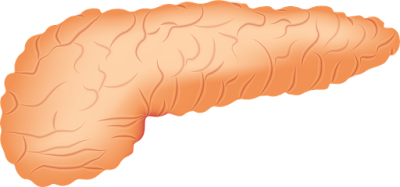What to eat before working out?
What to eat before and after your workout?
What you eat is very important not only for your health, appearance and well-being, but also affects your performance, strength and endurance during training. Therefore, when strenuous exercise is very important a balanced diet. So what to eat before and after exercise?
Mealtimes before exercise
The optimal time for eating before exercise is between 2 and 4 hours before training, because it is the best time to digest food. However, observing mealtimes is dependent on the plan of the day and hour in which to train. It has been found that the effectiveness of the exercise lasting 35-40 minutes at an intensity of moderate to high, improved low-fat meal after eating moderately high carbohydrate content.
They tested the volunteers were able to run much longer than those who ate a meal more than 4 hours before the test. If you leave too long interval between meals and training, you are in danger hyperglycemia (too low blood glucose levels), which will certainly decrease your performance.
Products recommended before exercise
The best pre-workout products are a low glycemic index. As they provide sustained energy throughout the exercise time. Athletes burn more fat during exercise if you previously ate a meal with a low glycemic index.
This may be, eg. .: cereal with bran or fruits and milk. It's better than the consumption of food with a high glycemic index - cornflakes, white bread, jam and a sports drink. Before exercise so be sure about the products with a low glycemic index, which will slowly be released into the blood.
Examples of meals before exercise
- Sandwich / bread / bagels / tortilla with chicken or fish, cheese, egg or peanut butter and salad
- Potatoes in uniform with beans, cheese, tuna, coleslaw or chicken
- Spaghetti with tomato sauce, cheese and vegetables
- Chicken with rice and salad
- Fish and potato pancakes
Remember to consume them between 2-ma-ma and 4 hours before training.
However, when you do not have two hours of time, and would like to practice in the morning, the best time to eat something really light, eg .:
- Milkshake,
- yoghurt,
- Or simply to drink diluted fruit juice.
After exercises
Reconstruction of glycogen takes an average of 20 hours, depending on the degree of exhaustion of its reserves, range of muscle damage and the amount, type and time of carbohydrate consumption.
The length of time required to rebuild strength and glycogen depends on many factors, among others, from:
the degree of reduction of glycogen after exercise. The more intense the exercise, the more you consume glycogen. After a long and exhausting exercises, eg. after the marathon recovery can take up to a week of muscle damage. Certain types of activities, among which are eg. strength training can cause damage to the muscle fibers.
Muscle damage, in turn, delay the accumulation of glycogen, so the total supplementing it may take up to 7-10 days. carbohydrates and meals. The amount of carbohydrates is customized and lost carbohydrates is best to complete as soon as possible after exercise, because that's when glycogen accumulates at the fastest pace.
During the first two hours the regeneration is the fastest - approximately 150%, which is 1.5 times faster than the normal rate. of training and fitness level. Performance in addition to glycogen improves automatically with an acquired experience sports and elevating the degree of the condition. Therefore, consuming the same amount of carbohydrates, an aspiring athlete needs more time than experienced.
How many carbohydrates?
It should provide 1g of carbohydrate per kilogram of body weight in the first 2 hours after exercise. Therefore, even if you end up training late in the evening, do not go to bed with an empty stomach. You should first begin the process of regeneration - the replenishment of glycogen.
Products recommended after exercise
If you train intensively every day or even twice a day, keep the consumption of products with a high GI in the first 2 hours after exercise. If you train too hard, once a day or less, choose products with low GI, because they increase strength and endurance during the next workout.
It has been proven that it is best to combine protein with carbohydrates and this is the most effective method in the process of rebuilding glycogen. The combination of protein and carbohydrates promotes the release of insulin, which stimulates the regeneration of muscle glycogen. This combination stimulates the transport of amino acids into muscle cells, which enhances protein synthesis.
Examples of snack after exercise
They should be eaten within 2 hours after exercise:
- 1-2 servings of fresh fruit with milk,
- fruit cocktail,
- Sandwich with white cheese and jam,
- Some rice cakes with jam or peanut butter and cottage cheese.
In the case of moderate exercise high intensity lasted longer than 60 minutes drinking sports drinks and carbohydrates in an amount of 30-60 g can help prolong
maintain exercise intensity and delay fatigue.
Daily diet
Ideally every day to choose products with low GI, including 4-6 small meals. This is conducive to the effective restoration of muscle glycogen, and increases satiety and appetite control, and helps to achieve a healthy weight.


Comments
Post a Comment